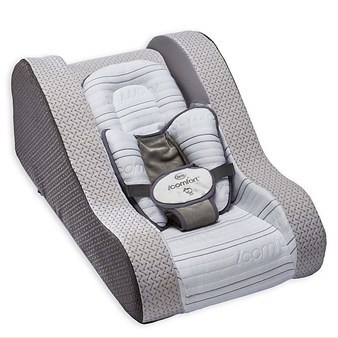Subjects: CHI, RCL, PSF, CFG
Advisory - Health Canada Advises Canadians to Stop Using and Selling Two Baby's Journey Infant Napper Products
Summary
Products: Baby's Journey Serta icomfort Premium Infant Napper and Baby's Journey Serta Perfect Sleeper Deluxe Infant Napper
Issue: Health Canada is advising consumers and retailers that these two inclined sleeper products pose potential suffocation and strangulation hazards and do not comply with the Cribs, Cradles and Bassinets Regulations.
What to do: Stop using and selling them immediately, disassemble and safely dispose of them in such a way that they cannot be used again.
OTTAWA, ON, July 16, 2020 /CNW/ - Health Canada has identified two inclined sleeping products sold between 2016 and 2018, potentially circulating on the second-hand market, that do not meet the safety requirements for bassinets under the Cribs, Cradles and Bassinets Regulations (CCBR).
The products involved are:
- Baby's Journey Serta icomfort Premium Infant Napper
- Baby's Journey Serta Perfect Sleeper Deluxe Infant Napper
Both products' inclined sleeping surface increases the risk of the baby's head falling forward when asleep which makes breathing difficult. Additionally, the design of both products have a restraint system used to hold the child in place, which is not permitted under the CCBR, as the presence of cords and loops in an infant's sleeping environment has the potential to lead to serious injury or death.
Although Health Canada is not aware if these products continue to be sold on the retail market, they may still be in households, handed down to family or friends, or sold through the second-hand market. Given that possibility, Canadians with these products should immediately stop using, disassemble and safely dispose of them in such a way that they cannot be used again.
Health Canada reminds consumers to prioritize safety when shopping for consumer products, and to use caution when buying second-hand items, particularly those intended for use by children. Under the Canada Consumer Product Safety Act (CCPSA), which is administered by Health Canada, everyone has the responsibility to ensure that the products they sell or give away, whether new, used or homemade, meet current Canadian safety requirements.
Health Canada encourages buyers and sellers of second-hand products, particularly products intended for use by children, to stay informed about product recalls and advisories as well as the regulatory requirements of products they sell.
What you should do
Consumers and retailers who have these affected products should immediately stop using or selling them, as well as disassemble and safely dispose of the items in such a way that they cannot be used again. It is a violation of the CCPSA to sell or give away these products. If these products were being used for sleep, Health Canada recommends caregivers to find alternative, safe sleeping arrangements.
To make informed decisions on second-hand purchases, consult Health Canada's guidance and information on buying second-hand products. Information is also available on selecting a safe sleep environment for your children.
Health Canada reminds Canadians to report any health or safety incidents related to the use of these products or any other consumer product or cosmetic by filling out the Consumer Product Incident Report Form.
What Health Canada is doing
Protecting the health and safety of Canadians, especially children, from unsafe consumer products is a top priority for Health Canada. Canada has some of the most stringent requirements for cribs, cradles and bassinets in the world. All cribs, cradles and bassinets manufactured, imported, advertised or sold in Canada must comply with the CCBR under the CCPSA.
To date, Health Canada has not received any reports of injuries related to these products.
Health Canada continues to monitor this issue and will take action as required.
Report health or safety concerns
Health Canada advises consumers to check the Government of Canada's Recalls and Safety Alerts website regularly for any recalled products and to report any consumer product-related health or safety concerns.
For more information
Safe sleep environment for your children
Buying second-hand products
SOURCE Health Canada
These press releases may also interest you
|
News published on and distributed by:





